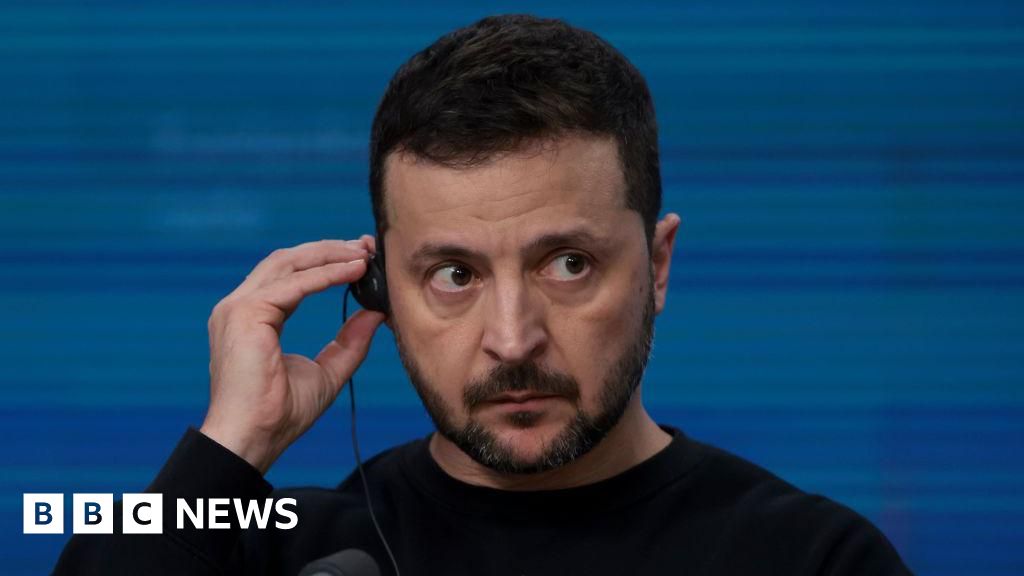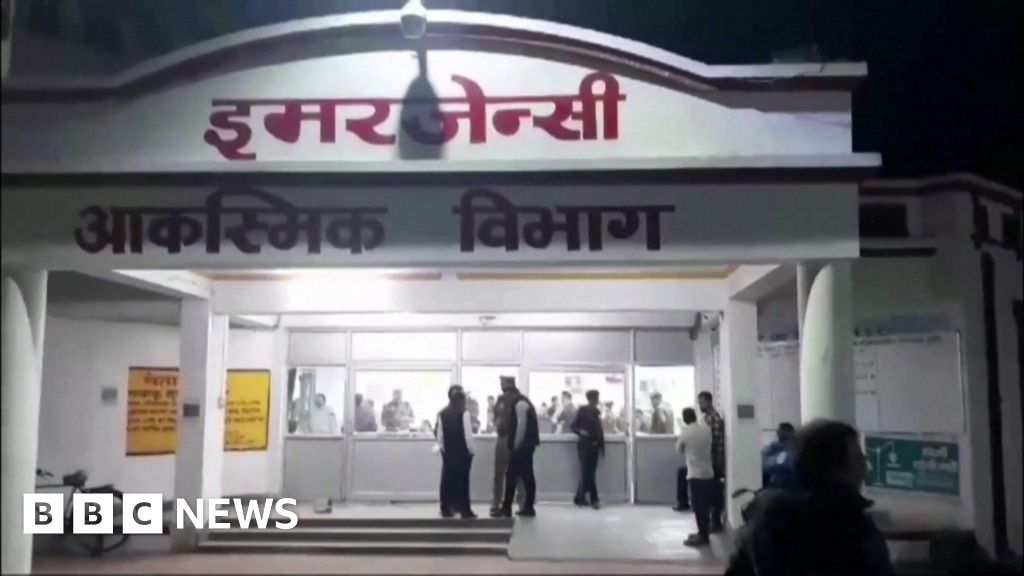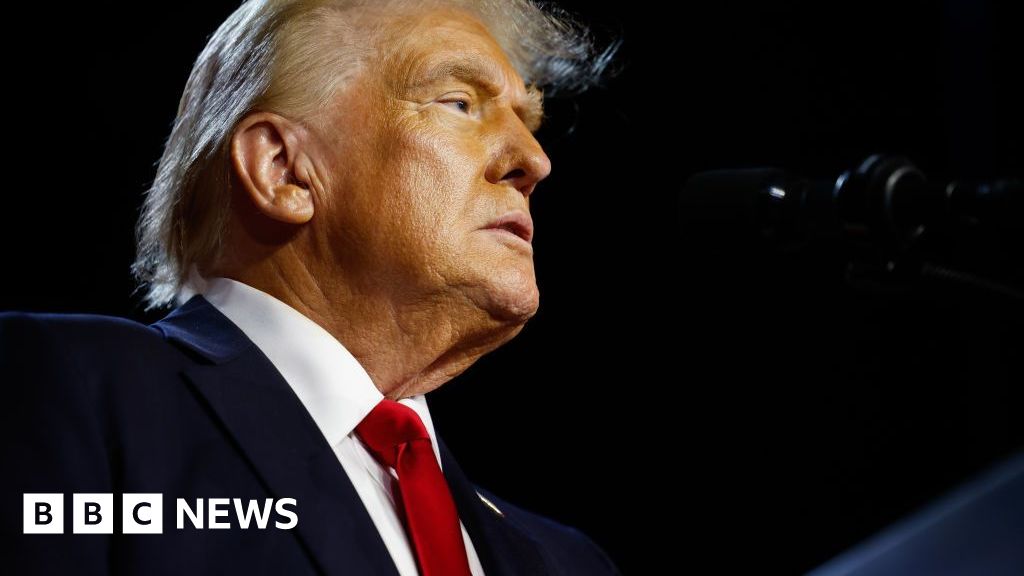ARTICLE AD BOX
By Katy Watson
BBC South America correspondent, Santiago
Andres' cafe is popular among the locals
Andres Cohen bought his first cafe on Plaza Baquedano 18 years ago.
The square in Santiago's city centre has traditionally been the focal point for important events - football wins, political rallies, a place of celebration. So it was a good money earner.
But in the past two years, much has changed.
In October 2019, protests broke out, sparked by a rise in the price of metro tickets.
They quickly escalated, with demands including better access to education, healthcare and pensions.
The "estallido social" - or social outbreak in English - was a call for change in this economically stable yet deeply unequal country.
A year later, one of the biggest demands was realised when Chileans overwhelmingly voted in favour of re-writing the dictatorship-era constitution.
Andres was one of them - but now he is tired.
A month after protests started in 2019, a second cafe he owned nearby got ransacked. Overnight, 70% of his business was destroyed.
Andres says years of work were destroyed in a matter of hours
"I came down here and cried," he says. "Years of work destroyed in a matter of hours."
It took Andre eight months to return, so traumatised and fearful he was of what had happened.
It's this fear that far-right candidate José Antonio Kast has capitalised on, tapping in to peoples' desire for stability.
It helped him win the first round, taking 28% of the vote, while the closest rival, leftist Gabriel Boric, secured 25%. Polls are showing it's now neck-and-neck between the candidates.
Father-of-nine Kast is against abortion, same-sex marriage and immigration. He has also praised the military dictatorship under General Augusto Pinochet.
But Mr Kast will get Andres' vote.
"We all want things to change but destroying the country is not the way," he says, admitting that as a business owner he's in a difficult position.
"On the one hand, a victory for the left will help calm this area, but it leaves big doubts in terms of the economy when it comes to me as a small business. It's hard, what do I do, which side do I choose?"
Image source, EPA
Image caption,José Antonio Kast has praised the military dictatorship under General Augusto Pinochet
As my interview with Andres draws to a close, car horns start beeping. Andres looks worried.
People are now shouting "the old woman is dead" and cracking open bottles of champagne.
Andres and his staff hastily close up the cafe.
Protesters are bouncing up and down in unison, while chanting "If you don't jump, you're Pinochet."
More than 30 years after the return of democracy, it was a moment many people had been waiting for.
"Today, the wife of a tyrant has died," says German Gruner, clutching a picture of his brother Alvaro who disappeared in 1974.
"It was a marriage that caused so much pain in this country," he says, adding that his mum wrote to Hiriart pleading to know where her son was but never got an answer.
"Those of us who suffered are celebrating the end of a dynasty."
German Gruner's brother Alvaro has been missing since 1974
As Chileans head to the polls this weekend, the spectre of that dynasty still looms large over voting choices. And the candidates are using that to their advantage.
Mr Kast calls Mr Boric a communist.
In turn Mr Boric, a former student protester, has played on his rival's authoritarian connections - Mr Kast's father was recently revealed to have been a member of the Nazi party.
Despite the polarising narrative though, experts say Chileans are not as split as the politicians like to think.
"When you look at how voters distribute themselves over the ideological spectrum, most people [are] in the centre," says Kenneth Bunker, founder of political analysis website Tresquintos.
"The supply of politicians are more polarised than the actual demand for them."
Still, the two candidates clearly want to set themselves apart from one another.
"All of the achievements that people have made throughout history have come through social mobilisation - so we don't have to be afraid of the organisation of people," Gabriel Boric tells me in an interview, responding to criticism that a protest leader can't be a good politician.
Image source, EPA
Image caption,Gabriel Boric is a 35-year-old deputy and champion of a leftist formation that has the support of the Communist Party
As for his views on Mr Kast, he says people need to learn from history - but not repeat it.
"José Antonio Kast is a man who admires Pinochet," Mr Boric says.
"People in Europe are worried about having someone who still defends what he did, that would be awful for our country and the political conversations in the international community."
Mr Kast, though, stayed on-message at his closing rally.
"We need to raise our voices and say that Chile is and never will be Marxist or communist," he said to a cheering crowd.
"To [the left] we say they are liars, the fabricators of the truth. They are cheating Chileans by telling them they've turned into white doves but communism is the same thing in Chile, and across the world - they can't deceive us."
"He [Kast] has always defended freedom," says Montserrat Lemos, 28, who's there with her husband and little baby.
"He's always defended family as an institution, and he's always been an honest man about his beliefs."
Aaron Diaz (right) thinks that Donald Trump was "the best president in history"
Mr Kast has been compared to Brazil's Jair Bolsonaro - and America's Donald Trump. In the crowds, there were plenty of symbols of the US far-right.
"Trump was the best president in history," says 22-year-old Aaron Diaz, who's wearing a Make America Great Again baseball cap.
"He represents me. Kast has the same right-wing politics."
Chile's history is dark - and it's a history that still haunts people.
These elections have brought fear to the fore, making them remember the past at the same time as having to decide the country's future.

 2 years ago
29
2 years ago
29








 English (US)
English (US)